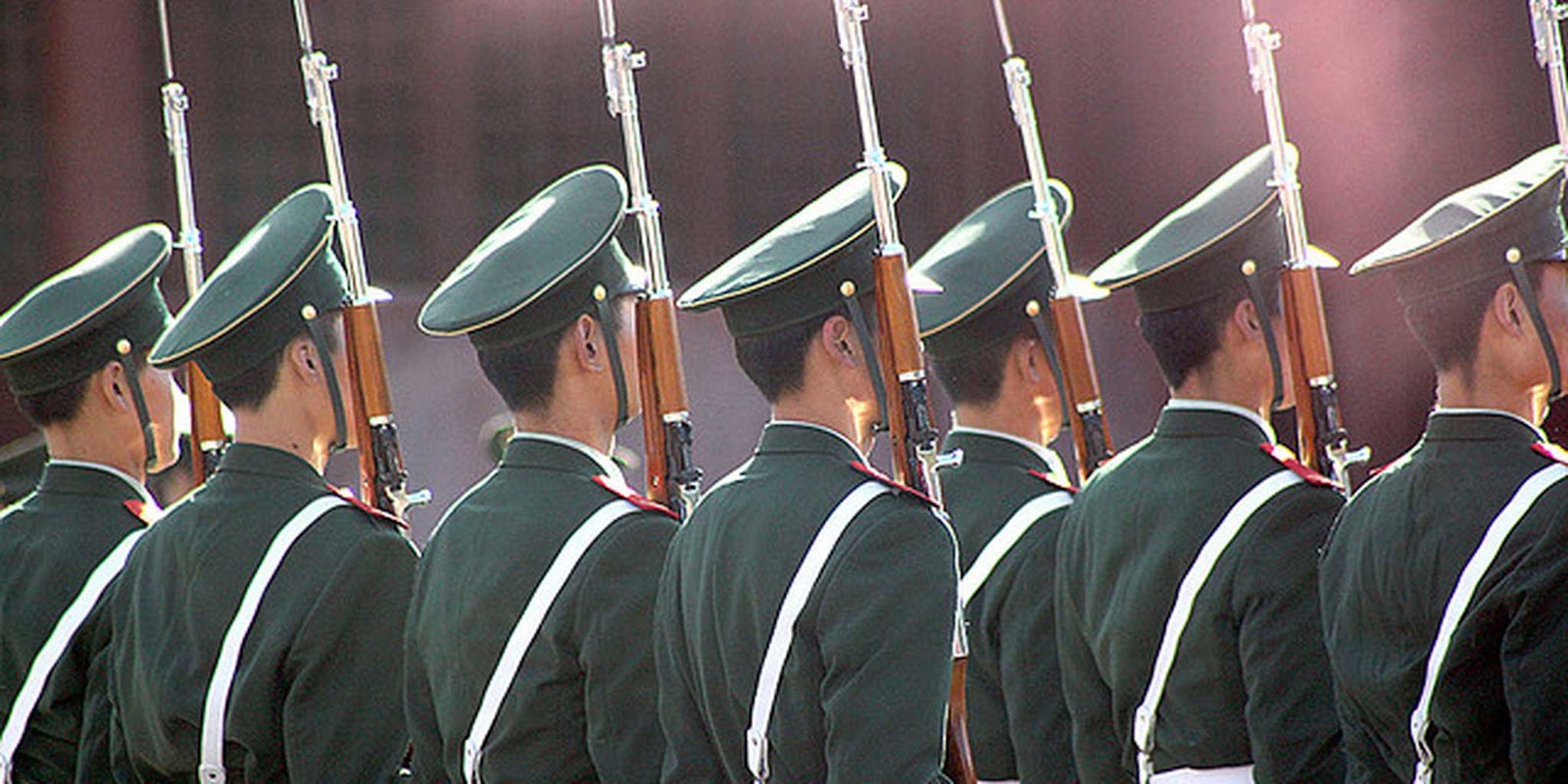Fresh on the heels of news that Chinese hackers compromised more than two dozen secret U.S. military weapons systems, the world’s largest country has announced plans to run its first ever cyber war games.
Chinese state news reports that the People’s Liberation Army will conduct exercises this month to “test new types of combat forces including units using digital technology amid efforts to adjust to informationalized war.” The drill is to be conducted at the Zhurihe training base in north China’s Inner Mongolia Autonomous Region, the country’s largest military training field. Forces from the 38th and 68th combined corps of the Beijing Military Area Command, as well as eight military academies, will participate.
The announcement of the military exercise comes at a tense time between the U.S. and China in regards to cybersecurity. This week, President Barack Obama will be meeting with the recently sworn-in president of China, Xi Jinping, in California. It will be Jinping’s first visit to the United States since taking office in March. Among the topics expected to be discussed will be China’s targeted and escalating campaign of cyber espionage against the U.S..
The Chinese have publicly denied hacking U.S. businesses and government targets. But in a confidential report leaked last week to the media, the Defense Science Board, a military advisory panel, claimed that Chinese hacking had compromised more than two dozen weapons systems. Among the hacked files were designs for missile defense shields and advanced aircraft.
But behind the public posturing, The Army Times reports that Chinese officials have been more candid in behind-the-scenes meetings with Secretary of State John Kerry and diplomats leading up to the presidential meeting:
“The Chinese have been ‘much more positive in private meetings,’ (said) James Lewis, a cybersecurity expert and former State Department official. The goal during Obama’s meeting, Lewis said, will be to ‘test whether the Chinese have really moved to a better position where they want to engage.’
A senior Obama administration official said that in recent talks, the Chinese seem to be less dismissive of U.S. concerns about cyber attacks, but that the matter would be not settled in one meeting.”
But the timing of China’s cyber war games could cast a shadow over the meeting. It’s unclear just what the exercises will entail—especially since they are to take place on a major training field instead of in a bunker. China, like most countries that put on war games, is not divulging much about its plans.
Although this is the first time the Chinese army has conducted cyber war games, this is not the first time such simulations have been carried out at all. Last year, ZDNet reported that the U.S. and Chinese think tanks have secretly engaged in cyber war games in the past. These games were organized by the Centre for Strategic and International Studies in Washington and the China Institute of Contemporary International Relations in Beijing, simulating what either country would do in the event of a targeted cyber attack in order to help prevent a rapid escalation of hostilities between the two superpowers.
In recent months, the Obama administration has made beefing up U.S. cybersecurity a top priority for the Pentagon and the federal government. Earlier this year, Obama signed an executive order to increase cybersecurity by creating a broad framework for sharing information between government agencies and private companies.
“We know hackers steal people’s identities and infiltrate private email,” the president said during his State of the Union Address this year. “We know foreign countries and companies swipe our corporate secrets. Now our enemies are also seeking the ability to sabotage our power grid, our financial institutions and our air traffic control systems. We cannot look back years from now and wonder why we did nothing in the face of real threats to our security and our economy.”
H/T The Hacker News | Photo by Luther Bailey/Flickr


